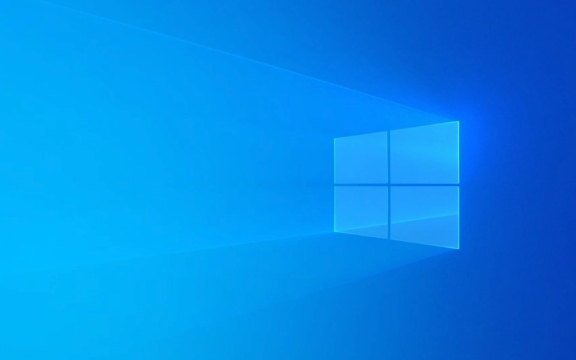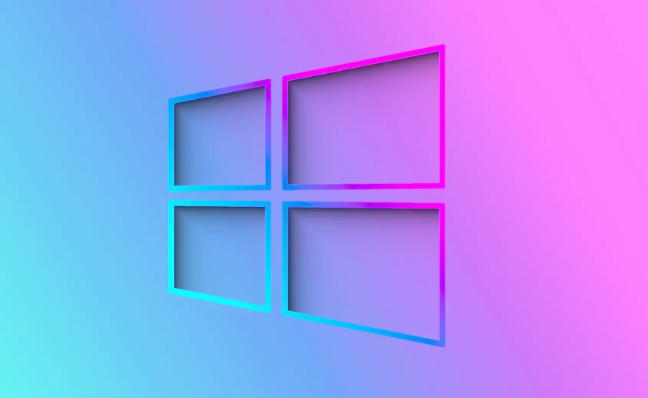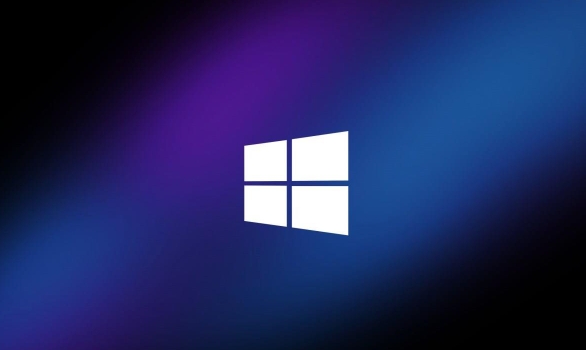Windows' built-in file history feature helps users recover old versions of files. To use this feature, you need to connect an external drive and enable file history, and then you can adjust the backup frequency as needed. When restoring the file, right-click the target file and select "Restore previous version" and select the required version. If file history is not enabled, try in-app recovery, OneDrive online version, or data recovery tool. 1. To enable file history, you need to connect to the storage device; 2. Set the backup frequency and saving time; 3. Restore the old version through the right-click menu; 4. If it is not enabled, you can try other recovery methods.

If you've ever accidentally overwritten a file or made changes you want to undo, Windows has a built-in feature that can help: file version history. It lets you restore previous versions of files and folders, so you don't have to rely solely on backups or third-party tools.

What is File History in Windows?
File History is a built-in Windows feature that automatically saves copies of your files at different points in time. It works by tracking changes in specific folders like Documents, Desktop, Pictures, and others. These saved versions allow you to go back and restore earlier iterations of a file if needed.
To use this feature effectively, you need to have File History already turned on and connected to an external drive or network location. If you haven't set it up yet, the next section will help with that.

How to Set Up File History
Before you can restore old versions, make sure File History is active:
- Connect an external drive or use a network folder to store the backups.
- Go to Settings > System > Storage > Advanced storage settings > File History .
- Turn on File History and select the drive you want to use.
- You can adjust how often backups are made (every hour by default) and how long versions are kept.
It's a good idea to leave the drive connected regularly so File History can keep updating. If you only plug it in once a week, that's how often your file versions will be saved.

How to Restore an Older Version of a File
When you need to get back an older version of a file, here's how to do it:
- Right-click the file or folder you want to restore.
- Choose Restore previous versions from the context menu.
- A list will appear showing available versions based on File History backups.
- Select the version you want and click Restore , or click Open to view it before restoring.
If you're restoring a file that was deleted, navigate to the original folder location and follow the same steps — Windows will show deleted versions if they exist.
One thing to note: if you're not seeing any previous versions, either File History wasn't enabled at the time or the file was changed outside the tracked folders.
What If File History Wasn't Enabled?
If you didn't have File History set up, your options are more limited, but not completely gone:
- Some apps (like Microsoft Word) autosave temporary versions — check the app's recovery options.
- If your system is connected to OneDrive, check the online version history there.
- As a last resort, data recovery tools might help if the file was recently deleted and not overwritten.
Still, the best approach is to enable File History early and keep it running — it's the most straightforward way to recover older file versions without extra hassle.
Basically that's it.
The above is the detailed content of How to restore previous versions of files in Windows. For more information, please follow other related articles on the PHP Chinese website!

Hot AI Tools

Undress AI Tool
Undress images for free

Undresser.AI Undress
AI-powered app for creating realistic nude photos

AI Clothes Remover
Online AI tool for removing clothes from photos.

Clothoff.io
AI clothes remover

Video Face Swap
Swap faces in any video effortlessly with our completely free AI face swap tool!

Hot Article

Hot Tools

Notepad++7.3.1
Easy-to-use and free code editor

SublimeText3 Chinese version
Chinese version, very easy to use

Zend Studio 13.0.1
Powerful PHP integrated development environment

Dreamweaver CS6
Visual web development tools

SublimeText3 Mac version
God-level code editing software (SublimeText3)

Hot Topics
 Windows 11 slow boot time fix
Jul 04, 2025 am 02:04 AM
Windows 11 slow boot time fix
Jul 04, 2025 am 02:04 AM
The problem of slow booting can be solved by the following methods: 1. Check and disable unnecessary booting programs; 2. Turn off the quick boot function; 3. Update the driver and check disk health; 4. Adjust the number of processor cores (only for advanced users). For Windows 11 systems, first, the default self-start software such as QQ and WeChat are disabled through the task manager to improve the startup speed; if you use dual systems or old hardware, you can enter the power option to turn off the quick boot function; second, use the device manager to update the driver and run the chkdsk command to fix disk errors, and it is recommended to replace the mechanical hard disk with SSD; for multi-core CPU users, the kernel parameters can be adjusted through bcdedit and msconfig to optimize the startup efficiency. Most cases can be corrected by basic investigation
 How to Change Font Color on Desktop Icons (Windows 11)
Jul 07, 2025 pm 12:07 PM
How to Change Font Color on Desktop Icons (Windows 11)
Jul 07, 2025 pm 12:07 PM
If you're having trouble reading your desktop icons' text or simply want to personalize your desktop look, you may be looking for a way to change the font color on desktop icons in Windows 11. Unfortunately, Windows 11 doesn't offer an easy built-in
 Fixed Windows 11 Google Chrome not opening
Jul 08, 2025 pm 02:36 PM
Fixed Windows 11 Google Chrome not opening
Jul 08, 2025 pm 02:36 PM
Fixed Windows 11 Google Chrome not opening Google Chrome is the most popular browser right now, but even it sometimes requires help to open on Windows. Then follow the on-screen instructions to complete the process. After completing the above steps, launch Google Chrome again to see if it works properly now. 5. Delete Chrome User Profile If you are still having problems, it may be time to delete Chrome User Profile. This will delete all your personal information, so be sure to back up all relevant data. Typically, you delete the Chrome user profile through the browser itself. But given that you can't open it, here's another way: Turn on Windo
 How to fix second monitor not detected in Windows?
Jul 12, 2025 am 02:27 AM
How to fix second monitor not detected in Windows?
Jul 12, 2025 am 02:27 AM
When Windows cannot detect a second monitor, first check whether the physical connection is normal, including power supply, cable plug-in and interface compatibility, and try to replace the cable or adapter; secondly, update or reinstall the graphics card driver through the Device Manager, and roll back the driver version if necessary; then manually click "Detection" in the display settings to identify the monitor to confirm whether it is correctly identified by the system; finally check whether the monitor input source is switched to the corresponding interface, and confirm whether the graphics card output port connected to the cable is correct. Following the above steps to check in turn, most dual-screen recognition problems can usually be solved.
 Want to Build an Everyday Work Desktop? Get a Mini PC Instead
Jul 08, 2025 am 06:03 AM
Want to Build an Everyday Work Desktop? Get a Mini PC Instead
Jul 08, 2025 am 06:03 AM
Mini PCs have undergone
 Fixed the failure to upload files in Windows Google Chrome
Jul 08, 2025 pm 02:33 PM
Fixed the failure to upload files in Windows Google Chrome
Jul 08, 2025 pm 02:33 PM
Have problems uploading files in Google Chrome? This may be annoying, right? Whether you are attaching documents to emails, sharing images on social media, or submitting important files for work or school, a smooth file upload process is crucial. So, it can be frustrating if your file uploads continue to fail in Chrome on Windows PC. If you're not ready to give up your favorite browser, here are some tips for fixes that can't upload files on Windows Google Chrome 1. Start with Universal Repair Before we learn about any advanced troubleshooting tips, it's best to try some of the basic solutions mentioned below. Troubleshooting Internet connection issues: Internet connection
 How to clear the print queue in Windows?
Jul 11, 2025 am 02:19 AM
How to clear the print queue in Windows?
Jul 11, 2025 am 02:19 AM
When encountering the problem of printing task stuck, clearing the print queue and restarting the PrintSpooler service is an effective solution. First, open the "Device and Printer" interface to find the corresponding printer, right-click the task and select "Cancel" to clear a single task, or click "Cancel all documents" to clear the queue at one time; if the queue is inaccessible, press Win R to enter services.msc to open the service list, find "PrintSpooler" and stop it before starting the service. If necessary, you can manually delete the residual files under the C:\Windows\System32\spool\PRINTERS path to completely solve the problem.







